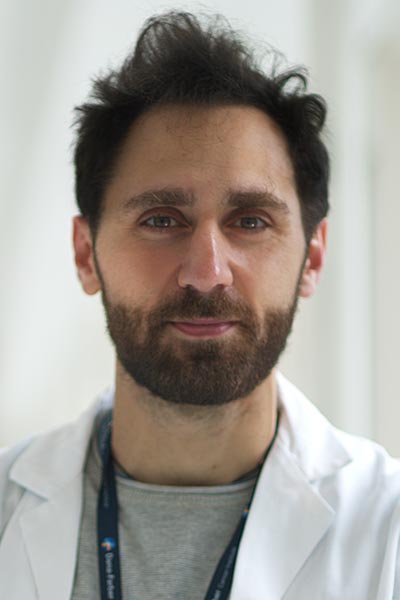2024 NextGen Stars Showcase: Gabriele Casirati, MD, PhD
//
Estimated Read Time:
The American Association for Cancer Research Annual Meeting 2024 will mark the 10th anniversary of the AACR’s NextGen Stars Program by welcoming in a class of 10 outstanding early-career scientists. Since 2014, the program has supported the professional advancement of graduate students, postdocs, and assistant professors by providing highly visible opportunities to present scientific findings at the Annual Meeting.
Hear from one of the newest NextGen Stars in their own words, below, and click here to read Q&As with other members of the NextGen Stars Class of 2024.

Gabriele Casirati, MD, PhD
AACR NextGen Stars Class of 2024
Research Fellow
Boston Children’s Hospital/Dana-Farber Cancer Institute, Boston, Massachusetts
Abstract Presentation:
NG05 – Epitope editing enables targeted immunotherapy of acute myeloid leukemia
Session Details:
AHM04 – Ongoing Advances in the Understanding and Treatment of Acute Myeloid Leukemia
Monday, April 8, 12:30 – 2 p.m. PT
Room 14, Mezzanine Level, Convention Center
What is the subject of your research?
Acute myeloid leukemia (AML) immunotherapies target genes expressed by hematopoietic stem/progenitors (HSPCs) or myeloid cells, resulting in intolerable on-target/off-tumor toxicity. We reasoned that precise epitope-engineering of donor HSPCs used for bone marrow transplantation endows hematopoietic lineages with selective resistance to chimeric antigen receptor (CAR) T cells or monoclonal antibodies, without affecting protein function or regulation. This strategy enables targeting genes that are essential for leukemia survival regardless of expression on HSPCs, reducing the risk of tumor immune-escape. We identified amino-acid changes that abrogate the binding of therapeutic mAbs targeting FLT3, CD123, and KIT, and optimized a base-editing approach to introduce them into CD34+ HSPCs, which retain long-term engraftment and multilineage differentiation. We confirmed resistance of epitope-edited hematopoiesis to CAR T cells and concomitant eradication of patient-derived AML xenografts. Furthermore, we show that multiplex epitope-edited HSPCs enable more effective immunotherapies against multiple targets without overlapping toxicities. We envision that epitope-editing will provide novel opportunities to treat relapsed/refractory AML patients.
What sparked your interest in this area of research, and why is it important?
As a hematologist by training, I was directly involved in the treatment of patients affected by hematological malignancies and undergoing bone marrow transplantation. The interplay between patients, disease features, therapeutic interventions, and outcomes sparked a growing desire to investigate further the determinants of treatment failure and success. This held particularly true with the growing adoption of immunotherapies, such as monoclonal antibodies, BiTEs, ADCs, and CAR T cells—a field of active research where much remains to be discovered.
What (or who) inspired you to apply for the NextGen Stars program?
The desire to get more involved with AACR and have the possibility to share my research with its network of experts in the field of oncology. Having the possibility to discuss new approaches and hypotheses with a wider audience will provide new opportunities for collaborative initiatives and potentially career advancement. In addition, the constant support from my mentor Prof. Genovese is always a great encouragement to leap into new adventures.
What are you looking forward to as a member of the NextGen Stars?
I look forward to participating in the AACR Annual Meeting and other AACR initiatives, meeting other NextGen Stars and getting involved in scientific discussions. I hope that in the future I will have the opportunity to publish a manuscript in one of the AACR journals and possibly have an active role in AACR programs and initiatives.




